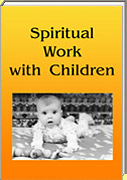New Ecopsychology
|
Vladimir AntonovPrefaceRussian reality is characterized by the absence of understanding by people of the meaning of their lives. Neither the atheism, which prevailed in our country for several decades, nor distorted religious beliefs can reasonably explain — from the philosophical standpoint — why we are here and what we are here to do. This is why non-spiritual people including children get irrevocably engaged into alcoholism and other kinds of drug addiction, into crime, which become a habitual way of life for them. The experience proves that appeals to lead “a healthy way of life” cannot become a stable alternative for the masses if there is no answer to the main philosophical question — the question of the meaning of our lives on the Earth. We have discussed this already in many publications [3,5-16,26,28,41], but to children, of course, it has to be presented in a simplified form using a language that corresponds to their level of understanding. It has to be done unobtrusively, without coercion*, as simply informing them — so that having grown up, they could remember and use it as a basis for their world view and for an understanding of their place and role both in the vast expanses of the multidimensional Absolute and among other people on the Earth. Those who read this book may either directly apply the techniques described here or create their own modifications on this basis, but they must include in teaching the main theme — the theme of spiritual love: reverence to God, the theme of goodness, compassion, service to everyone in everything good, care for all creatures including people, animals, and plants. After all, we ourselves are consciousnesses incarnated in physical bodies; we abide in the endless universal Ocean of All-seeing and All-hearing Consciousness of God, Who is Love, Who will accept us forever in His Abode if we become Love as He is. The stories about Divine Teachers and about achievements of spiritual adepts will also remain forever in the children’s memory to be used as examples to follow [24-25,27 and others].
|





